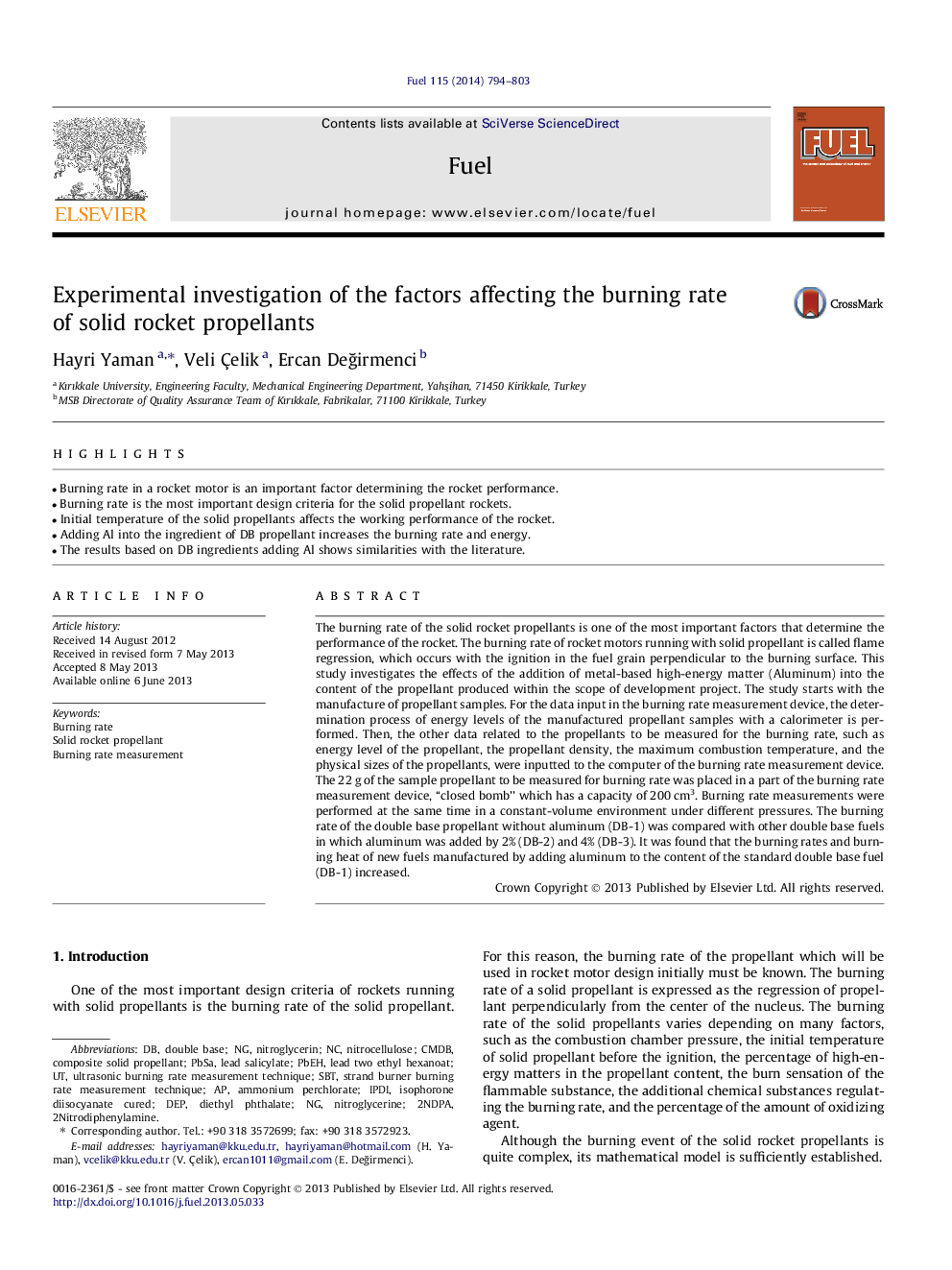| کد مقاله | کد نشریه | سال انتشار | مقاله انگلیسی | نسخه تمام متن |
|---|---|---|---|---|
| 6639671 | 461155 | 2014 | 10 صفحه PDF | دانلود رایگان |
عنوان انگلیسی مقاله ISI
Experimental investigation of the factors affecting the burning rate of solid rocket propellants
ترجمه فارسی عنوان
بررسی تجربی عوامل موثر بر میزان سوزاندن سوخت های فسیلی راکت
دانلود مقاله + سفارش ترجمه
دانلود مقاله ISI انگلیسی
رایگان برای ایرانیان
کلمات کلیدی
موضوعات مرتبط
مهندسی و علوم پایه
مهندسی شیمی
مهندسی شیمی (عمومی)
چکیده انگلیسی
The burning rate of the solid rocket propellants is one of the most important factors that determine the performance of the rocket. The burning rate of rocket motors running with solid propellant is called flame regression, which occurs with the ignition in the fuel grain perpendicular to the burning surface. This study investigates the effects of the addition of metal-based high-energy matter (Aluminum) into the content of the propellant produced within the scope of development project. The study starts with the manufacture of propellant samples. For the data input in the burning rate measurement device, the determination process of energy levels of the manufactured propellant samples with a calorimeter is performed. Then, the other data related to the propellants to be measured for the burning rate, such as energy level of the propellant, the propellant density, the maximum combustion temperature, and the physical sizes of the propellants, were inputted to the computer of the burning rate measurement device. The 22Â g of the sample propellant to be measured for burning rate was placed in a part of the burning rate measurement device, “closed bomb” which has a capacity of 200Â cm3. Burning rate measurements were performed at the same time in a constant-volume environment under different pressures. The burning rate of the double base propellant without aluminum (DB-1) was compared with other double base fuels in which aluminum was added by 2% (DB-2) and 4% (DB-3). It was found that the burning rates and burning heat of new fuels manufactured by adding aluminum to the content of the standard double base fuel (DB-1) increased.
ناشر
Database: Elsevier - ScienceDirect (ساینس دایرکت)
Journal: Fuel - Volume 115, January 2014, Pages 794-803
Journal: Fuel - Volume 115, January 2014, Pages 794-803
نویسندگان
Hayri Yaman, Veli Ãelik, Ercan DeÄirmenci,
